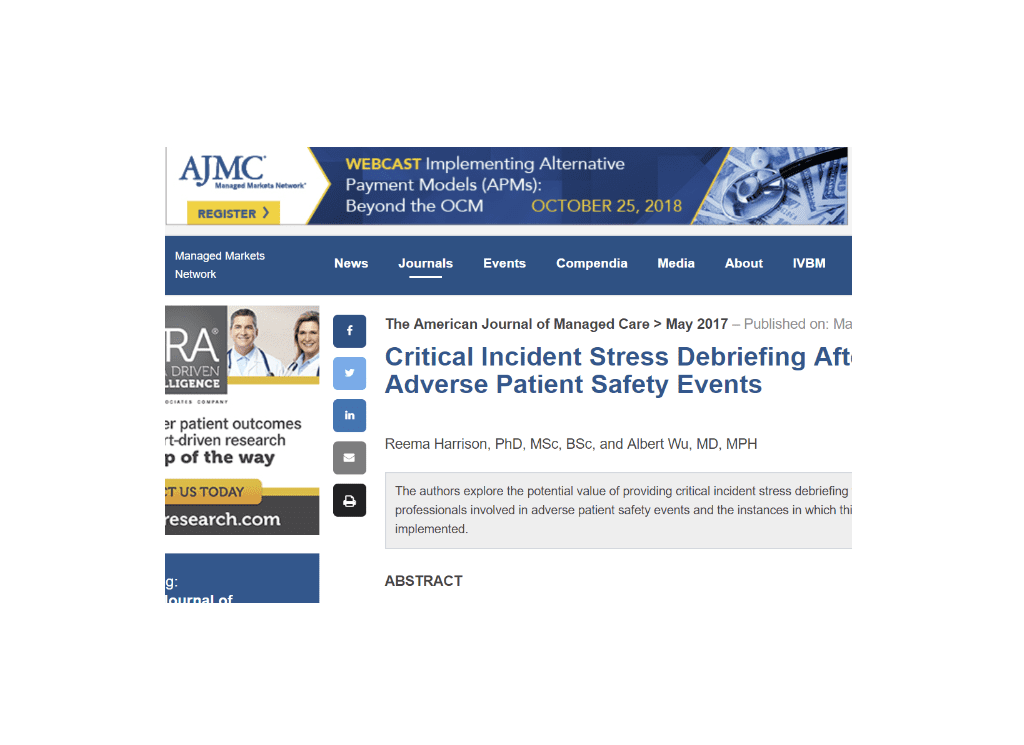
This section covers relevant research on critical incidence debriefing and supports available to health care workers.

American Association of Nurse Anesthetists. Guidelines for Critical Incident Stress Management
These guidelines are a resource for health care organizations, patients, families and caregivers to develop and integrate into facility policy and ongoing education programs to support essential dialogue during and, more importantly, for as long as necessary, after a critical adverse event.
Joseph Davis. Critical Incident Stress Debriefing from a Traumatic Event. Psychology Today, February 2013
In the aftermath of any critical incident, psychological reactions are quite common and are quite predictable. Critical Incident Stress Debriefing or CISD and the management of traumatic reactions by survivors can be a valuable tool following a life-threatening event.
Reema Harrison and Albert Wu. Critical Incident Stress Debriefing after Adverse Patient Safety Events. The American Journal of Managed Care, Vol. 23 (5), May 2017
This article explores the potential value of providing CISD for health professionals involved in patient safety-related AEs and discuss the instances in which this could be routinely implemented.
Critical incident may be defined as a life-threatening crisis that requires rescue or emergency care. These incidents evoke strong emotional responses from health care workers.This article examines the development of CISD and explores its implementation at St. Joseph’s Hospital and Medical Center/Barrow Neurological Institute in Phoenix.
This study aims to summarize information, research and practice relating to the management of workplace violence victims under a set outline. The objectives are to confirm the importance of victim management to minimize the consequences of workplace violence in the health sector.